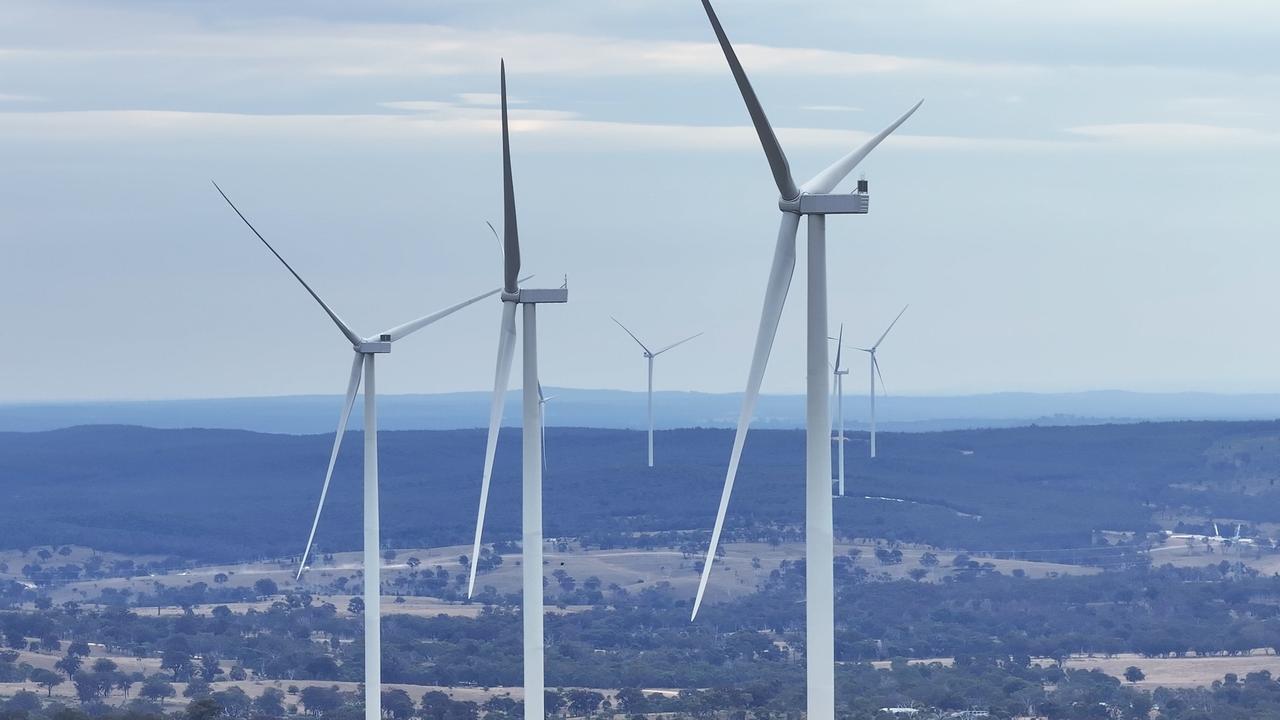Australians worried about retirement costs: State Street
Despite a dramatic reversal of market fortunes, an increasing number of Australians are worried they won’t be financially ready to stop working. Here’s what’s worrying them.

Business
Don't miss out on the headlines from Business. Followed categories will be added to My News.
Australians are becoming increasingly worried about their ability to fund their retirement amid concerns of the rising cost of living, mortgage debt and medical expenses, according to a survey by global investment management company, State Street Global Advisors.
The survey, which questions people in major economies on their confidence about the outlook for their retirement, shows only 20 per cent of Australians surveyed felt they had enough money to fund their retirement — down from 25 per cent the year before.
The number of Australians worried they will never be financially secure enough to retire has gone up from 10 per cent of those surveyed over the year, to 14 per cent.
Some 50 per cent said they were worried they would not have enough money to retire when they planned to — up from 40 per cent the previous year.
Almost half — 46 per cent — were worried that they would not be “financially prepared” by the time they planned to stop working, up from 41 per cent.
State Street’s head of investments Australia, Jonathan Shead, said the increasing concern among Australians about the outlook for their retirement had come despite the fact investment markets in Australia had recovered last year with shares recording a rise of 14.8 per cent in the year to June 2023 and the value of property trusts rising 8.1 per cent — reversing market falls in the year to June 2022.
“Given the focus of the superannuation industry on investment returns, we were expecting to see a lift in measures of retirement confidence in Australia in 2023,” Mr Shead said.
“But despite this dramatic reversal in markets, many of the measures of confidence appear to have weakened rather than strengthened among our Australian respondents.”
Asked why there was a change in sentiment, 73 per cent cited concerns about inflation and the cost of living, 38 per cent were worried about mortgage debt and housing costs, and 35 per cent said they were concerned about being able to fund potential medical expenses.
“Clearly, confidence in retirement is a function of more than simple investment returns,” Mr Shead said.
The survey comes as Anthony Albanese has indicated the federal government will be moving to announce measures to ease the cost of living before the May budget.
“The government continues to work and will continue to look at whatever measures we can undertake,” the Prime Minister said in an interview this week.
“We know that the cost-of-living pressures are there, and we know that the fight against inflation is not over.
“We need to continue to put that pressure on, which is why what I’ve said is that we’ll continue to look for targeted cost-of-living relief, how we can make a difference for people without adding to inflation.”
While there are signs inflation is easing, the cost-of-living pressures on households continue, with rising costs in energy, rents, mortgages and insurance.
Markets are waiting to see if the Reserve Bank will increase interest rates when it meets for the first time this year on February 6.
Australians’ increasing concerns about their retirement prospects come as respondents to the survey in other countries — including the UK, the US, Ireland and Canada — reported they were more confident about the outlook for their retirement.
“Survey respondents gained some distance from the turmoil of covid-19 and expressed more confidence in their ability to retire than they did during the pandemic,” State Street said of its global report. Mr Shead said: “There was a general increase in confidence globally but in Australia there was a decrease in 2023.”
He said the situation in Australia was different to other countries, where some pension and social security payments weren’t means-tested.
He said in other countries, people could be assured they would receive some pension or social security payments when they retired, which made it easier for people to plan, but government payments in Australia were means-tested, which meant people could not rely on receiving funding in their retirement.
He said inflation and the cost-of-living crisis had risen to the top of concerns globally as people approached their retirement.
“In Australia, the worries about mortgage debt were not a surprise to me, but unexpected expenses like medical expenses were also in the top three things which were negatively impacting their confidence about retirement,” he said.
Mr Shead said 28 per cent of Australians surveyed were worried they would outlive their savings. He said only 5 per cent saw being able to pass on a bequest as being important.
This is in contrast with comments from the government saying some people were seeing their superannuation as a part of their estate planning.
Mr Shead said many Australians in retirement were not pulling out as much from their superannuation as they could, as they were wanting to preserve their superannuation savings in case of unexpected costs, including medical costs.
He said many were just taking out the minimum required from their super fund each year.
“There is a fear of being left to live on the aged pension and not being able to meet later-in-life medical expenses,” he said.
Mr Shead said the latest survey had shown Australians were becoming less interested in the sustainability of their superannuation fund investments.
“In 2022, 67 per cent of Australian respondents considered it important that their superannuation fund be invested sustainably,” he said.
“This proportion dropped to 56 per cent in 2023, while the average across the rest of the countries surveyed increased from 54 per cent to 59 per cent over the same period.”
“Australians have moved from having notably higher expectations than the rest of the world, to having similar or even lower expectations of sustainability.”
He said the survey had shown Australians were becoming more confident in using annuities to help fund their retirement.
“We saw encouraging signs that annuities may have turned the corner in Australia,” he said.
“Acceptance of some of the stereotypical negative statements about annuities has softened.
“It isn’t clear whether this softening is due to higher rates of education or some other factor, but it does auger well for trustees looking to include longevity products in holistic retirement solutions.”
The federal Treasury cited the low use of annuities in Australia as one of the issues to be discussed in its consultation paper on the retirement phase of superannuation released in December.
Originally published as Australians worried about retirement costs: State Street




